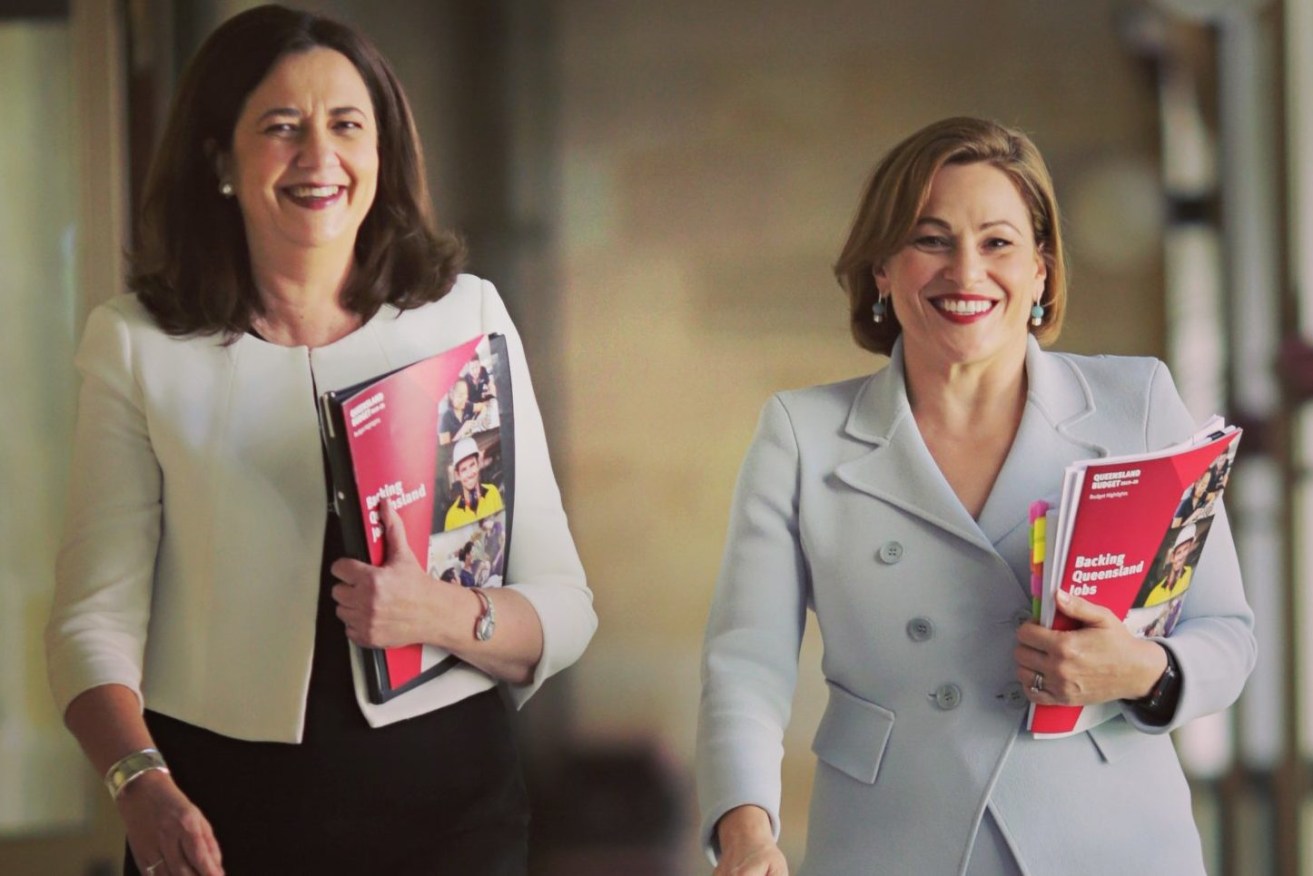Clouds gather before State Budget storm
Taxpayer-funded auditors have given a bleak outlook for the Queensland Budget, with expenses rising faster than revenue and no sign of a windfall any time soon.

Premier Annastacia Palaszczuk and Treasurer Jackie Trad ahead of the last Queensland Budget. (Source: Jackie Trad, Facebook)
In a report tabled in parliament, the Queensland Audit Office found the State Government’s financial performance had deteriorated since the last election and forecasts were grim.
“Since 2016–17, the Queensland Government’s expenses have increased by $7.3 billion (11 per cent), while it has only been able to increase total revenue by $4 billion (six per cent),” the report states.
“The growth in expenses over this period has been driven by increases in: employee expenses, including superannuation (13 per cent); other operating expenses (nine per cent); grant expenses (15 per cent).”
With an increasing number of public servants being added to the payroll, their future superannuation needs are still notionally funded by the state, but with less buffer.
“The Queensland Government holds sufficient investments to meet its future superannuation obligations,” the report states, reflecting on the 2018-19 outcomes.
“However, the increase in the Government’s superannuation liability and a decrease in the value of the investments held, meant the extent to which the liability is supported, on an accounting basis, declined by $2.1 billion on the previous year.”
Debt will rise over the next four years. While the auditors found current levels to be sustainable, they recommended careful management, saying major projects including the Cross River Rail had to be “closely monitored”.
Treasurer Jackie Trad recently told InQueensland the debt levels were comparable with other states and would be reduced under a plan outlined in the mid-year budget review.
Meanwhile, the cost of responding to natural disasters and climate events is proving to be an ongoing strain on the budget, before the impact of the novel coronavirus, Covid-19 is even calculated.
“It creates even more pressure on us to engage with stakeholders and get the budget settings right,” Trad said.
As Trad prepares the Dtate Budget, to be handed down on April 28, the report has flagged a need for tax hikes, particularly with declining GST revenue from the Commonwealth. The state remains heavily reliant on coal royalties.
“If the Australian Government reduces the grant revenue it provides, the Queensland Government may need to increase the revenue it generates itself to meet its service delivery costs,” the report states.
Trad would not be drawn on her intentions, but said the national economy was struggling and had needed stimulus measures before Covid-19 hit the tourism, retail and export sectors. She expressed concern for jobs and said major projects remained vital.
“The states are doing the heavy lifting when it comes to infrastructure,” Trad said.
Federal Treasurer Josh Frydenberg has rejected the states’ call for crisis talks, ahead of the next treasurers’ meeting in April, and is facing budgetary problems of his own.












